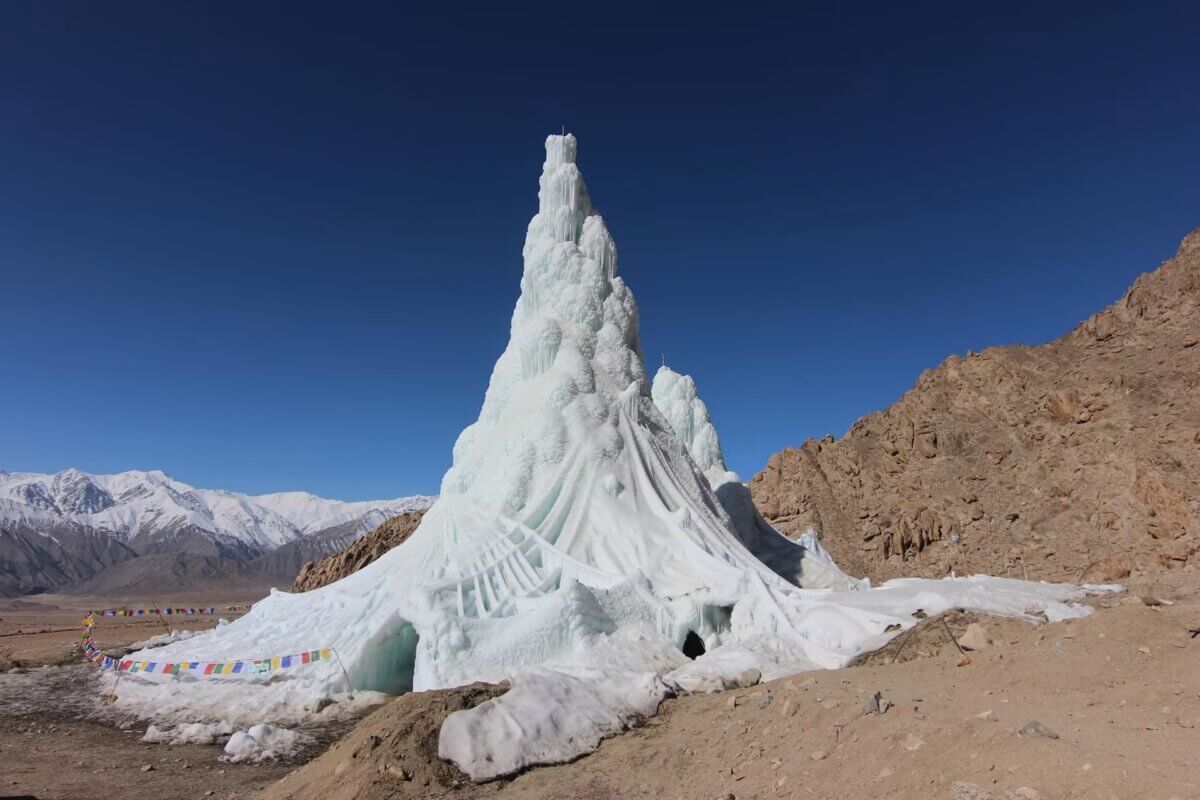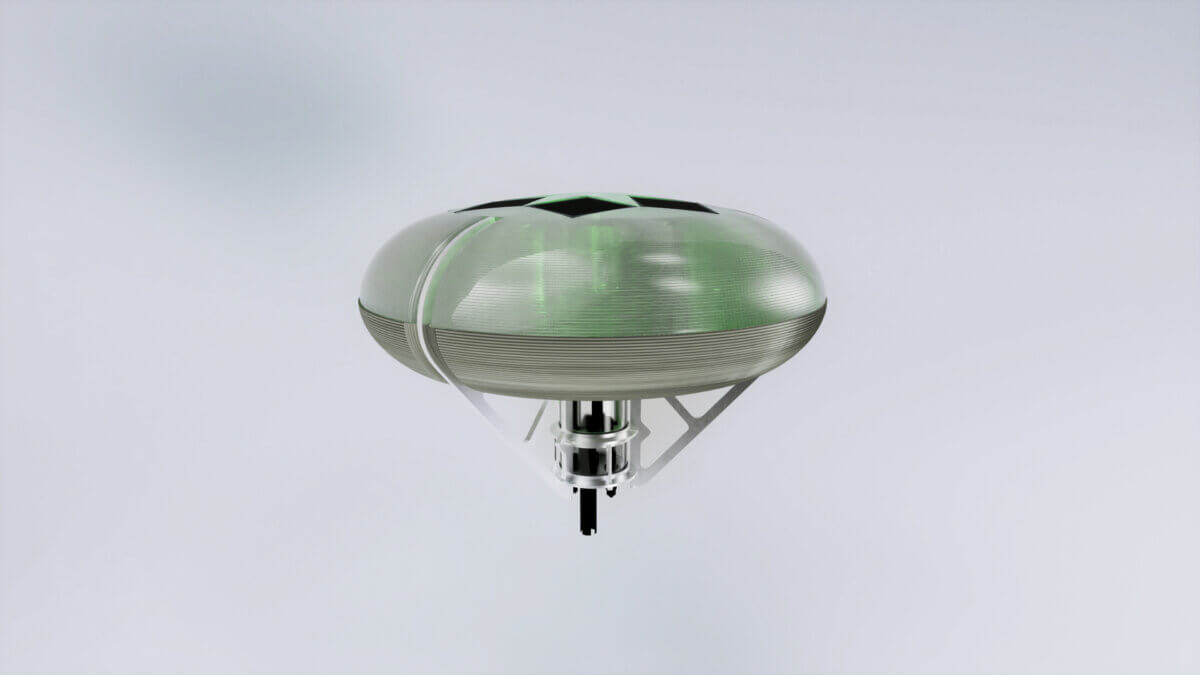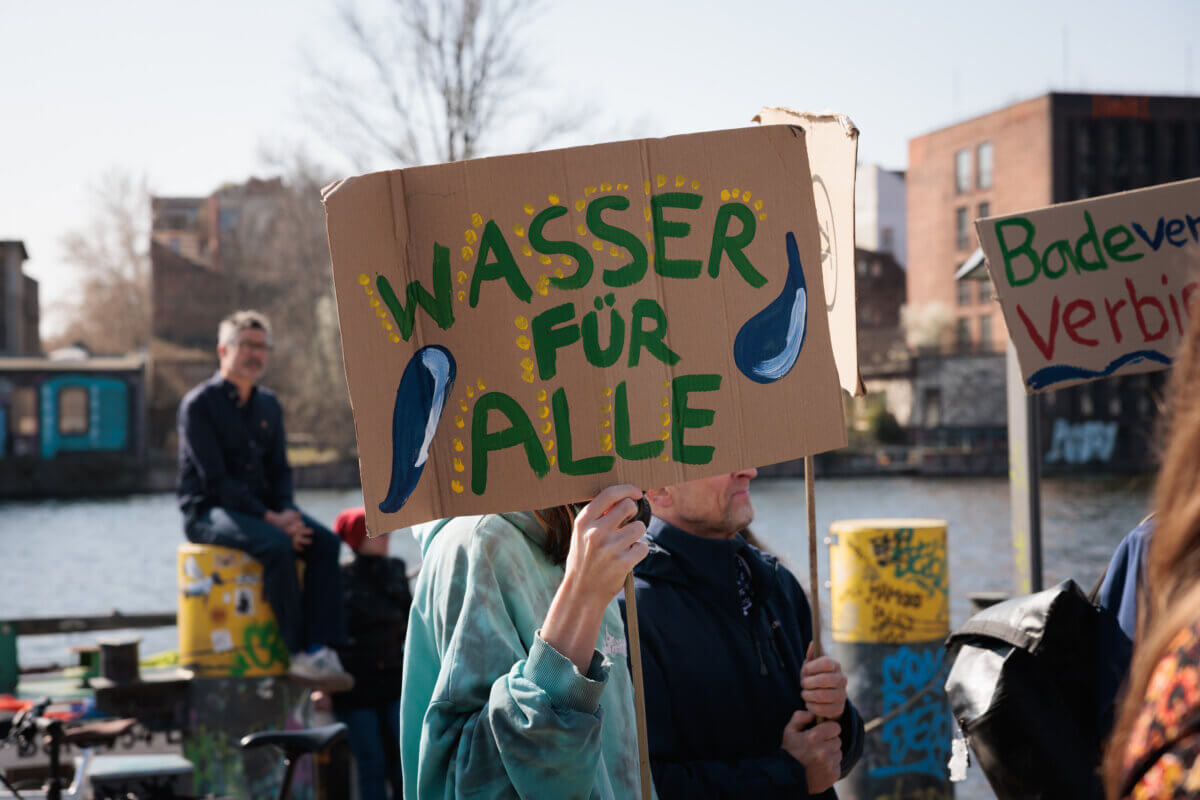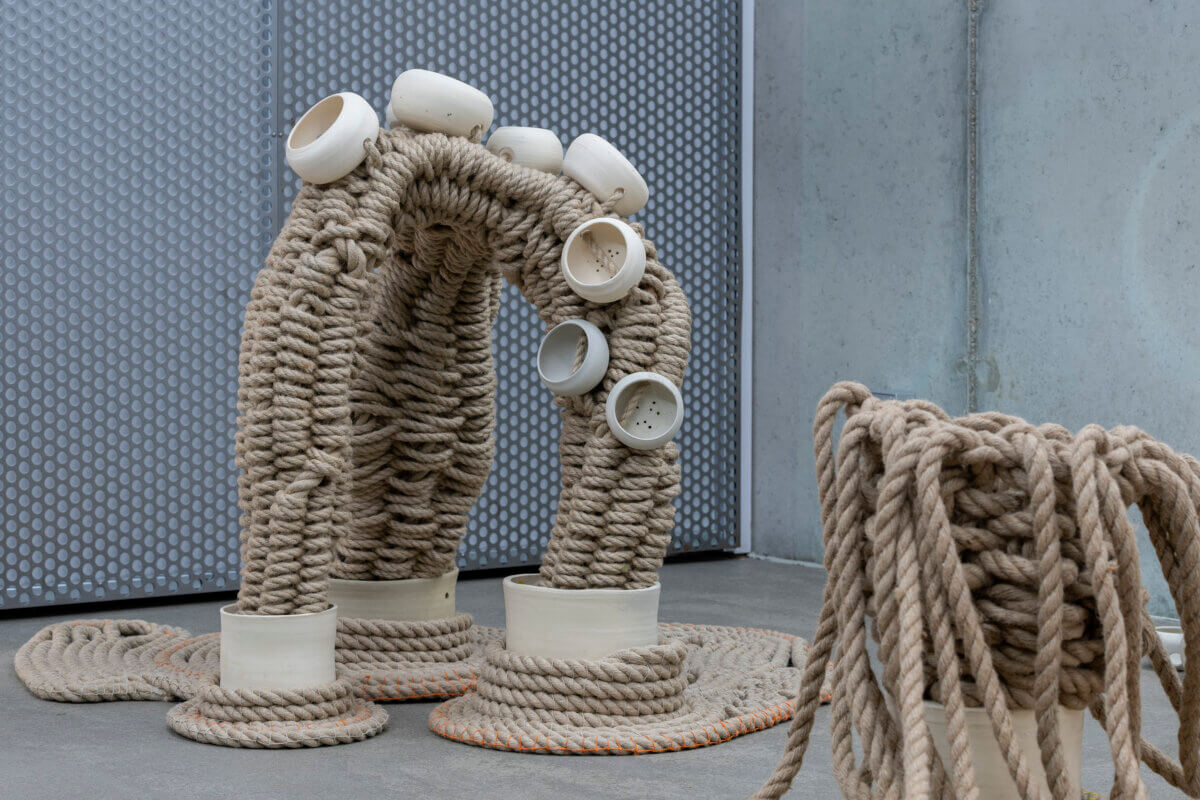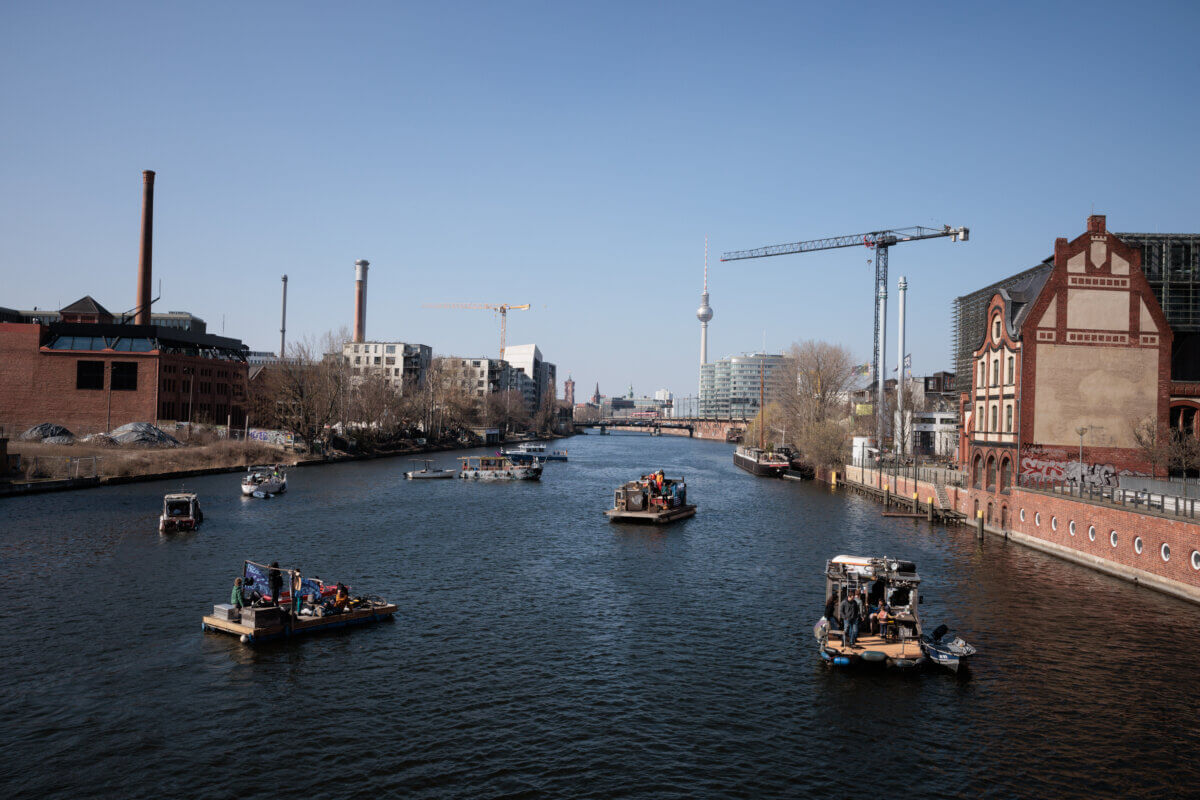Structure of the exhibition
The exhibition develops its argument along lifeworld motifs of encounters with water: in the sea, on the coast, in the city, in the river, in the bath and so on. On all these levels, the aim is to balance out too much and too little water. The exhibition uses exemplary research projects to bring science to life and make it tangible. Researchers from the Berlin University Alliance, for example, deal with puddles in the city, with vortices in rivers and street fountains in Berlin, with the melting of glaciers in the Alps, the bathtub as a therapeutic place or life on and in rivers. The voices of the scientists can be heard in the form of an audio track in which they talk about their fascination with their research on and with water. This makes it possible to experience the diversity and complexity of water knowledge in Berlin. But not just limited to there: the exhibition also presents selected research projects that deal with solutions to water scarcity in Egypt and Kurdistan, taking local knowledge into account. In addition, a legal initiative will be shown that deals with the question of how the Spree could be given rights. Across the many research projects, there are signs of a changeing understanding of science that takes the dynamics and inherent logic of water seriously and also recognizes the limits of knowledge. Science is beginning to adapt to water.
Participating scientists (among others)
Apolline Alfsen (Paleontology, FU), Dimitra Almpani-Lekka (Matters of Activity, HU), Monika Ankele (Berlin Medical History Museum, Charité), Manuela Bauche (Political Science, FU), Ella Beaucamp (Art History, FU), Annett Bochmann (Sociology, HU), Isabel Bredenbröker (European Ethnology, HU), Magdalena Buchczyk (European Ethnology, HU), Christian Calliess (Law, FU), Sascha Danneberg (Futures Studies, FU), Andrei Dörre (Human Geography, FU), Dieter Gerten (Geography, HU), Salam Ebeid (Social and Cultural Anthropology, FU), Irina Engelhardt (Hydrogeology, TU), Ignacio Farías (European Ethnology, HU), Susanne Gödde (Religious Studies, FU), Şermin Güven (Human Geography, FU), Sabine Hark (Interdisciplinary Women’s and Gender Studies, TU), Anke te Heesen (History, HU), Reinhard Hinkelmann (Civil Engineering, TU), Valerii Karpov (Chemistry, HU), Christian Kassung (Cultural History and Theory, HU), Sebastian Klotz (Musicology, HU), Ulrike Kluge (Charité), Tobias Krüger (Hydrology, HU), Mats Küssner (Musicology, HU), Laura Lehnhoff (Paleontology, FU), Bertram Lomfeld (Law, FU), Walther Maradiegue (Institute For Latin American Studies, FU), Giorgia Marcelli (Mathematics, FU), Elizabeth H. Margulis (Musicology, Princeton University), Christian Marx (Hydrology, TU), Gabriele Metzler (History, HU), Timothy Moss (Geography, HU), Thomas Nehlfs (Ecology, TU), Indrawan Prabaharyaka (Ethnology, HU), Frank Postberg (Planetary Sciences, FU), Juliana Robles de la Pava (Inherit, HU), Regina Römhild (European Ethnology, HU), Joachim Sauer (Chemistry, HU), Tobias Sauter (Geography, HU), Christoph Schneider (Geography, HU), Gerhard Scholtz (Biology, HU), Daniela Schoster (Meteorology, FU), Susanne Schreiber (Biology, HU), Alexander Schunka (History and Cultural Studies, FU), Dörthe Tetzlaff (Ecohydrology, HU), Tomás Usón (Geography, HU), Mareike Vennen (Landesarchiv Berlin), Sebastian Walter (Planetary Sciences, FU), Rasa Weber (Matters of Activity, HU), Kirsty Wissing (Anthropology, Australian National University), Leyla Zami (Theater Studies, FU)
Lecturers and students of the study program “Stage Design and Scenography” at the TU, especially Annette Müller, Kerstin Laube, Robert Niemann, Johanna Schulze, Henrike Haber, Carmen Hartmann; students of the study program “Futures Studies” at the FU
Participating artists and contributors
Angela Alves (UDK, Berlin), Mirja Busch (Berlin), Andreas Greiner (Berlin), Green Legal Impact (Berlin), Jakob Kukula (Berlin), Pedro Ortuño, Teresa Pereda (Buenos Aires), The Poetry Project (Berlin), Ian Purnell (Berlin), Estefanía Sánchez-Guerrero, Ony Yan & Team of Cerberus (Berlin/Kiel)
